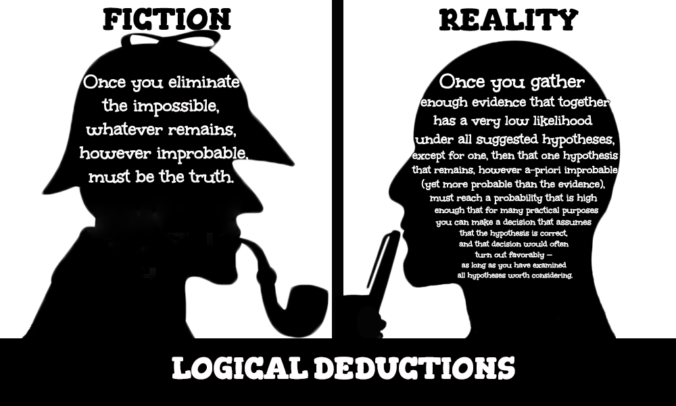Logic Is Dead
As discussed in a previous post, logic fails in the real world. Real-world problems do not lend themselves to logical reasoning since any non-trivial issue involves some uncertainty (Was the report accurate? Is the test result a false-positive?). When the problem is also complex, involving large amounts of information with intricate dependencies, then uncertainty can render the logical argument meaningless.
How Does Anyone Make Decisions?
Given these hurdles, how has humanity managed to make any progress at all? How do we deal with uncertain information in cases of high complexity? Continue reading







Recent Comments